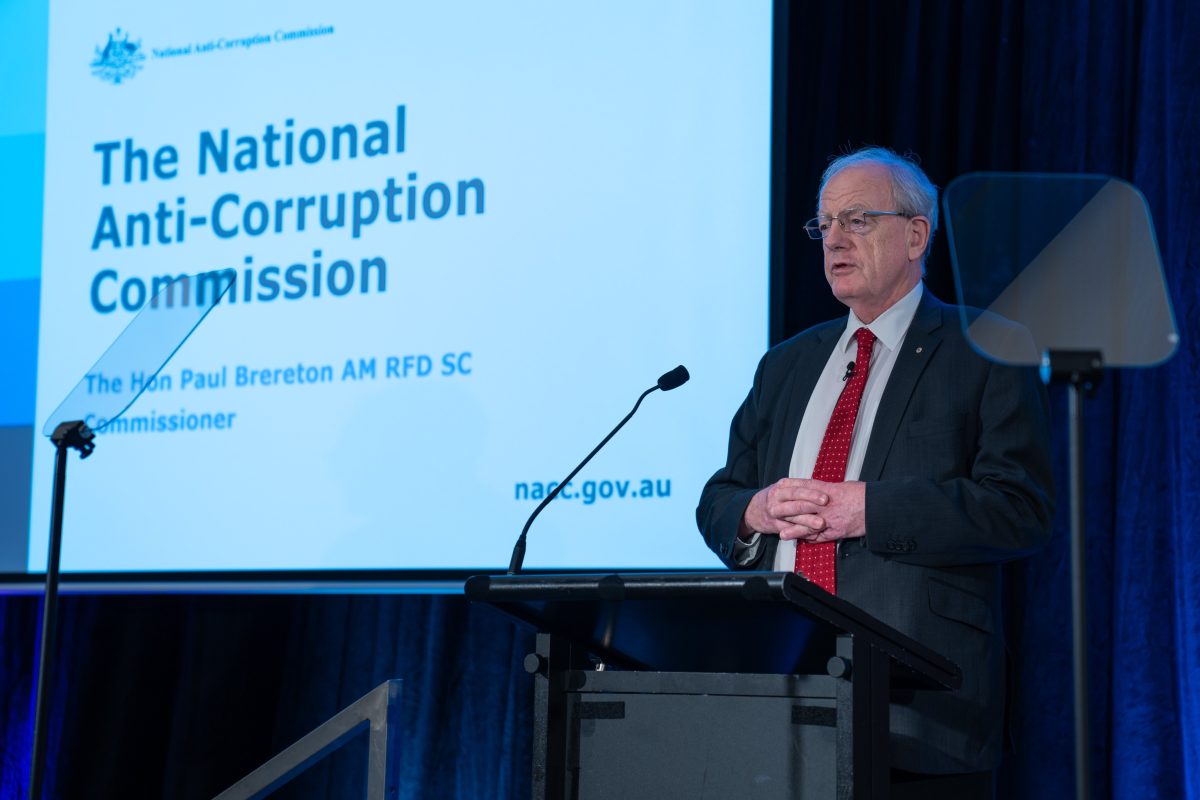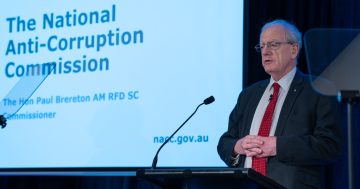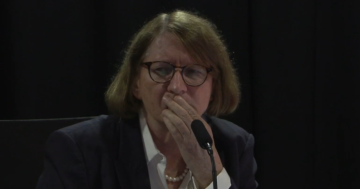
NACC Commissioner Paul Brereton tells the Governance Institute of Australia that he’s staying put. Photo: NACC.
National Anti-Corruption Commissioner Paul Brereton is remaining defiant in the face of calls for him to resign over his role in the commission’s decision not to investigate anyone referred to it from the Royal Commission into the Robodebt Scheme.
The NACC decided in June that it would not investigate any of the six people referred, but last month, the commission’s independent Inspector, Gail Furness, found Commissioner Brereton failed to act properly after declaring a conflict of interest in relation to one of those people.
She concluded the commissioner had engaged in what is legally described as ‘’officer misconduct’’ but stressed he had not broken the law.
There were immediate calls (including from this writer) for Mr Brereton to step down.
Addressing the Governance Institute of Australia on Friday (15 November), the commissioner made it clear he was going nowhere.
He opened his address by noting that the organisers of this year’s National Public Sector Governance Forum had asked him in the past two weeks whether he was still coming to address the gathering in Adelaide and, if he was, if he would still be commissioner.
“The answer, as you see today, is yes,” he said.
Commissioner Brereton went on to stress his view that corruption investigations rarely benefitted from publicity and that demands for public hearings and “so-called scalps” were counterproductive.
He said he would never declare an individual corrupt without strong evidence.
The one person he knew of those referred over Robodebt, he added, was not a close friend but rather a “past professional relationship”.
But he accepted the finding in the inspector’s report that he had erred in judgment.
“That report found that although I declared a perceived conflict of interest and managed it by delegating decision-making to a deputy commissioner and excused myself from the meeting when the decision was to be made, this was insufficient to avoid the decision not to reinvestigate the Robodebt issues and was affected by apprehended bias,” he said.
“That is, the possibility that a reasonable observer would think that the decision was possibly not impartial on account of my involvement in parts of the process … Any mistake of fact or law is within the definition of ‘officer misconduct’ in the NACC Act, and so that stinging finding inevitably followed.
“Some have suggested that I should resign. Others have gone further. One commentator even posted that it was revolver-in-the-library time for me, which was liked by another 1700.
“I’m afraid I didn’t find it particularly funny.
“I’ve accepted that viewed through the lens of the legal notion of apprehended bias, I’ve been found to have made a mistake, for which I’ve taken sole responsibility.”
The commissioner said that having accepted that he got the balance wrong, the NACC was now setting it right and would, as recommended by the inspector, appoint an eminent person to oversee a reconsideration of the original decision not to investigate anyone over Robodebt.
The NACC has also amended its conflict-of-interest procedures.
“Perhaps the most important lesson is that we are not the best person to manage our own conflict of interest,” he said.
“And to the suggestions that I should resign – I think you will have probably gathered my response by now.
“If every judge found to have made a mistake of law or fact resigned, there wouldn’t be one sitting on the bench in this country.”
The illegal Robodebt automated debt recovery scheme was piloted in 2015 and fully rolled out between 2016 and 2019 by the Department of Human Services and its successor, Services Australia, with more than 470,000 false debts issued.
It caused extensive grief and trauma. Some recipients are reported to have taken their own lives over the debts. The scheme was officially scrapped in 2020.
An investigation by the Australian Public Service Commission recently found former department secretaries Kathryn Campbell and Renée Leon to have both breached the public service code of conduct in their handling of Robodebt.
Delivering her report in July last year, Royal Commissioner Catherine Holmes wrote a cover letter to the Governor-General explaining the report contained a sealed chapter recommending the referral of individuals for civil and criminal prosecution.
That part of that report referred people to the NACC, the APSC, the Australian Federal Police and the ACT Law Society.
The sealed section is expected to soon be released publicly.

















